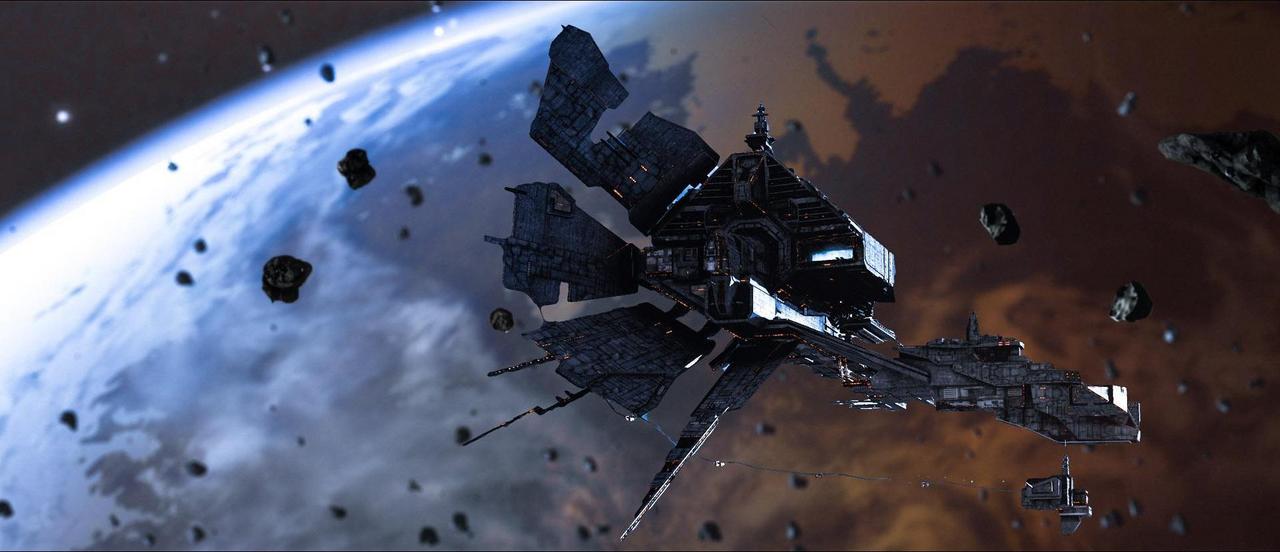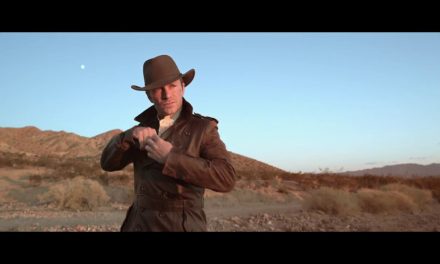“Tysha Sokolovna,” a tinny voice rasped in the darkness. “Ms. Sokolovna, can you hear me?”
She struggled to regain consciousness, as if she were swimming through molasses, trying to break through to the surface. “Hello?” she managed in a tired whisper before being drawn back down into the abyss of her own mind.
Minutes or hours passed before she again heard the voice calling to her, sounding far away and poorly-transmitted. She tried to turn her head toward it but couldn’t feel anything move. She tried to open her eyes, but could only see utter darkness. Was she under anesthesia, in a coma, or worse—was this death? Memories of alarms, choking smoke, and people screaming rushed to the forefront of her thoughts. Her instinct was to panic, but she couldn’t move her lungs to draw breath; she couldn’t feel if she even had a chest at all.
“Ms. Sokolovna, please relax,” the far-off voice came again, placatively. “You are safe; the paralysis is temporary and only a side-effect.”
“A side effect of what?” she heard herself say, though she could feel neither her lips nor tongue form the sounds, adrift as she was in a sea of emptiness.
“Do you remember where you were when your ship was attacked?” the voice continued, ignoring her question.
She answered slowly, her recollection fragmented and scattered. “We were near the second moon of Todaki V, on our way to research an asteroid field.”
“Very good—that’s correct,” the voice commended. “Pilot Errinson was critically wounded by a neural feedback loop caused by the attackers. Do you know what happened next?”
“I was near the bridge, going over our mission plans. I heard him cry out, and the ship started shaking, like it was being hit by something.”
“Short-range torpedoes, actually,” added the mysterious voice.
“I went to check on the pilot, but he was dead. I heard screaming from the decks below and smelled smoke. I thought we were all going to die.”
“There were forty-one people on that Ibis-class transport, Ms. Sokolovna. Other than Pilot Errinson, do you know how many made it back to station?”
If she had a head to shake, she would have. “Just me?” she guessed somberly.
“Every last one of them. Forty people saved from the raiders, and the ship too I should add. Do you know how that happened?”
“CONCORD?” she asumed, referencing the interstellar police force. “I didn’t see any before I blacked out, but who else—” she trailed off.
“You don’t remember?”
“Everything else is just pain and then—darkness. I was there, fighting for my life, and now I’m here, wherever ‘here’ is.”
The voice had a grinning quality to it, almost self-satisfied. “‘Fighting for your life’ is quite right, Ms. Sokolovna. You fought for the lives of everyone on that ship.” It didn’t give her time to process its response before continuing. “You were injured as a child, yes? Can you tell me how that changed things for you?”
Tysha’s own voice took on a hard tone—or at least, she hoped it did. “The prosthetics never fit right. I completed the rest of my schooling in low-g environments and spent most of my life staying space-side whenever possible.”
“These studies were done manually, I understand. Your file describes a ‘severe reaction’ to the use of neural implants, unfortunately discovered only after installation. That you finished so highly in your class is commendable.”
“Thanks,” she stated flatly. “What does my injury and schooling have to do with what happened aboard the transport?”
A pause.
“Despite a biological incompatibility with direct neural interfacing, any semblance of formal training, and while under great stress, you piloted the Ibis home, Ms. Sokolovna.”
“How did I—” she interrupted, confused.
“You plugged in, taking Errinson’s place. You dodged the second rocket barrage and were able to warp the damaged ship back to the School of Applied Knowledge station in orbit around Todaki V. You saved them all. That kind of dedication is a truly rare quality.”
She tried to blink without eyelids in the viscous darkness, not understanding. “But that’s impossible—the doctors said I would never be able to sync with a machine interface without irreparable damage.” A new feeling of dread and horror washed over her.
“There’s a funny thing about the word ‘irreparable,'” the voice offered, almost too casually. “We can address all number of physical ailments, if it’s important enough to the collective to do so. A large factor of whether or not that kind of time, energy, and expense is worthwhile depends on the mind, the attitude, and makeup of the patient in question. You did very well to prove yourself in that skirmish.”
Tysha couldn’t respond, daren’t respond.
“I would like to be the first to welcome you to your new home within the School’s most renowned class of explorers and scientists.”
“You mean—” she gasped.
“Yes Ms. Sokolovna, you are the newest Capsuleer in our ranks. With this elevation you are invested with the ability to traverse the far reaches of the galaxy in search of scientific discoveries, without fearing for your own life; your neural impulses are transmitted by the pilot pod to our cutting-edge clone bay here at the Todaki station. Though we always prefer the preservation of all of our assets, we understand your travels may be in rough and rugged, lawless regions of space. In time you will develop the skills to fly almost any ship possessed by the Caldari Empire through thought alone.”
“I heard that they’re—I’m—that Capsuleers are immortal?”
“Functionally yes,” it candidly replied. “So long as you have a body sheath to return to, your consciousness will never be lost. Our clones are bio-engineered to ensure you never have to worry about disease or physical ailments ever again.”
“Does that mean—” she stuttered, “are my arm and leg—”
“Open your eyes and see for yourself, Ms. Sokolovna.” The voice faded from her mind, receding as if on an ebbing tide.
With great effort she forced her eyelids open, her brain abruptly reconnecting to her body as if a switch had been thrown. Wincing from the harsh medical theater lighting, she realized she could feel the cold metal beneath her left foot, the uncomfortable armrest beneath her left arm. Slowly, daring to hope, she looked down.
“Welcome to the fleet,” congratulated Professor Tannen, a well-known biological researcher from the prestigious Sisters of EVE humanitarian aid organization. “You’ve earned your place here, and we expect that great things are ahead of you.”
Header image from EVE Online in-game cinematics















